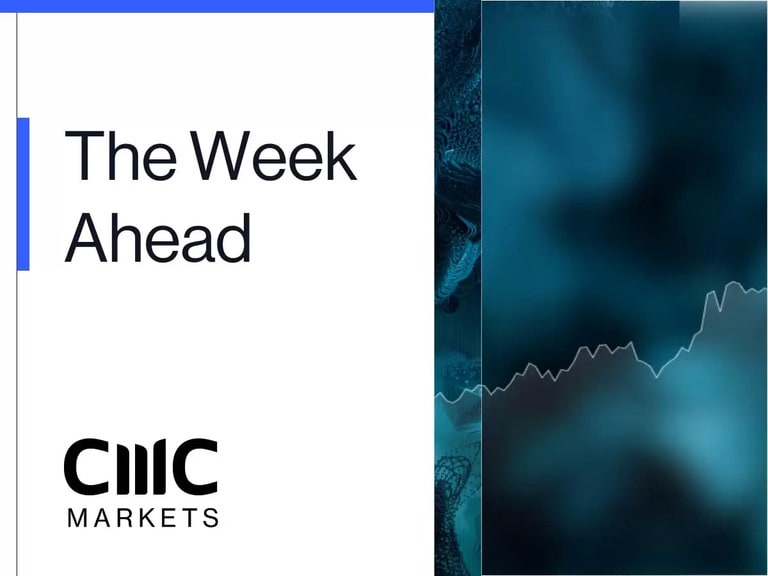Yesterday saw another positive session for US markets with the Nasdaq 100 and Dow notching new record highs, while the S&P 500 continued to close in on the 4,800 level, as the exuberance from last week continued.
European markets underwent a more subdued session notching modest gains while trading in a tight range, just below the record highs posted last week by the DAX and CAC40.
As we continue to wind down into the Christmas break, today’s focus will be on the latest inflation numbers from the UK as we look towards a positive European open.
The last few days have been interesting ones particularly if you’re a bond market trader, yields falling sharply after Fed chair Jay Powell’s comments that the US central bank had discussed the timing of rate cuts next year.
This surprise bombshell had markets re-writing their timelines for when rate cuts might start, however as with anything when it comes to financial markets when central banks start showing a bit of leg, markets always want a bit more, and that’s precisely what we’ve been seeing these past few days.
Because of last week’s events markets quickly decided that the Bank of England could be forced to cut rates sooner than originally priced, with markets pricing the prospect that we could see Bailey and Co cut rates by up to 115bps by the end of 2024, as well as cutting before the ECB.
While that would be welcomed by a lot of people that seems unlikely given that on a comparative basis the UK economy is performing slightly better than the EU, particularly in services where inflation is currently still well above 6%, although headline inflation is also much higher.
This is why we had 3 Bank of England policymakers vote for another 25bps rate hike last week, if only to try and keep rate cut expectations in check.
In comments made earlier this week Bank of England deputy governor Ben Broadbent alluded to elevated inflation, along with uncertainty over the UK labour market, which could force the central bank to wait longer before it can establish with certainty whether inflation is on its way back to the banks 2% target.
Uncertainty over the true level of wage growth is also a factor, indicating that to some extent the bank is flying blind when it comes to how quickly inflation is slowing.
These concerns were echoed to some extent by fellow deputy governor Sarah Breeden in comments made yesterday when she expressed concern over persistent wage pressure and said that rates would need to remain high for an extended period until unemployment starts to rise further, or wage growth slows more sharply than expected.
Against that backdrop today’s UK CPI inflation numbers for November will be closely scrutinised for further evidence of slowing prices.
October brought some welcome relief for beleaguered UK consumers as the effects of the energy price cap from a year before fell out of the annual numbers, as headline CPI fell to 4.6% from September’s 6.7%.
Since March of this year headline CPI in the UK has more than halved, slowing from 10.1%, with today’s November numbers expected to slow to 4.3%, helped by the sharp decline we’ve seen in petrol prices over the past few weeks.
The Bank of England’s bigger problem, apart from wage growth which is above 7%, is services CPI which is expected to come in unchanged at 6.6%, but also core CPI which is expected to slow to 5.6%.
If we fall short in either of these two latter numbers we could see a reaction in gilt markets, however it is also worth keeping an eye on PPI inflation where we’ve been in deflation since July on the year-on-year numbers.
At some point this will start to trickle down into the headline numbers sometime in the new year, energy prices allowing, and could see inflation quickly fall towards 3% in Q1 of 2024.
There is a silver lining to all this of course is that wages are now rising faster than headline inflation which in turn is helping to ameliorate some of the worst effects of the last 2 years and will continue to do so over the next few months if unemployment doesn’t start rising sharply.
This would suggest that headline inflation has the potential to slow further in the coming months and could fall towards 4% by the start of next year.
EUR/USD – still feels like we could see a move higher, but we need to see a move above the recent peaks at 1.1015/20. A break above 1.1030 has the potential to target the July peaks at 1.1275. While below 1.1020 we remain susceptible to pullbacks towards 1.0830 and the 200-day SMA.
GBP/USD – while above the 200-day SMA at 1.2520 the pound feels like it wants to go higher, but we need to crack above the 1.2800 to offer hope of that. We also have support at the 1.2590 area.
EUR/GBP – continues to struggle below the 100-day SMA at 0.8640, with a break targeting the 0.8700 area. Support at the 0.8570/80 area. A move below 0.8580 targets 0.8520.
USD/JPY – having squeezed back above the 200-day SMA we could move up to 146.00 in the short term before running out of steam. While below 146.00 the bias remains for a move below 140.00.
Disclaimer: CMC Markets is an execution-only service provider. The material (whether or not it states any opinions) is for general information purposes only, and does not take into account your personal circumstances or objectives. Nothing in this material is (or should be considered to be) financial, investment or other advice on which reliance should be placed. No opinion given in the material constitutes a recommendation by CMC Markets or the author that any particular investment, security, transaction or investment strategy is suitable for any specific person. The material has not been prepared in accordance with legal requirements designed to promote the independence of investment research. Although we are not specifically prevented from dealing before providing this material, we do not seek to take advantage of the material prior to its dissemination.







